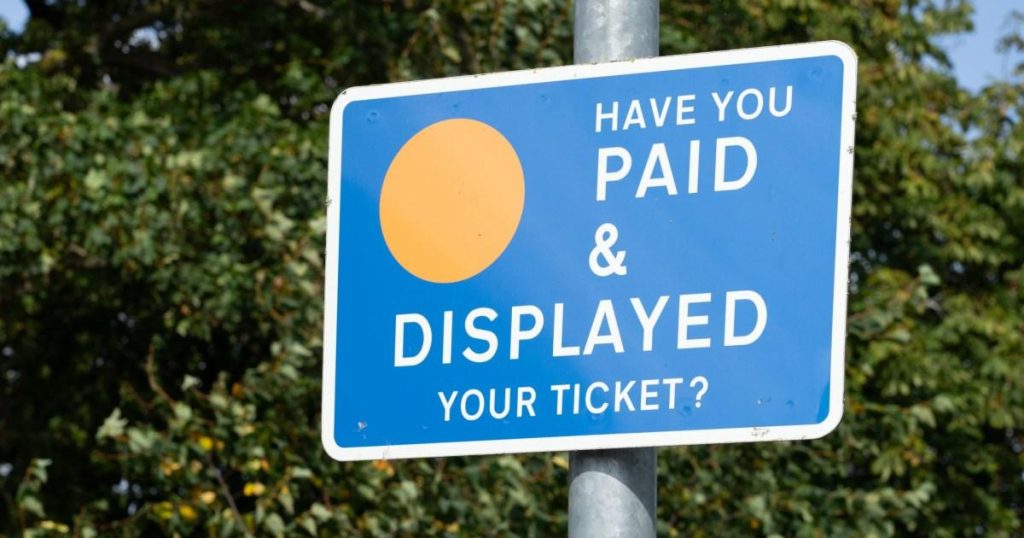The Plight of Private Parking: A Review of Unreasonable Practices and the Need for Regulation
The private parking industry in the UK has come under intense scrutiny for its often-criticized practices, including exorbitant fines, misleading signage, and aggressive debt collection tactics. A recent case involving bodybuilder and makeup artist Rosey Hudson exemplifies the challenges faced by motorists. Ms. Hudson was fined £1,906 for repeatedly exceeding the five-minute grace period allowed for purchasing a parking ticket in a private Derby car park. Her defense, that the lack of a ticket machine and poor mobile signal necessitated walking further afield to purchase a ticket via a phone app, ultimately led to the fine being withdrawn after she was summoned to court. This incident has sparked a review of the existing private parking code of conduct, highlighting the need for clearer guidelines and greater consideration for the practical challenges faced by drivers.
The current system, which allows only five minutes for drivers to locate a machine or utilize an app to pay for parking, often proves inadequate, particularly in situations involving technical difficulties or remote payment methods. The British Parking Association (BPA) and the International Parking Community (IPC) have acknowledged the shortcomings of the existing five-minute rule and announced the formation of a panel to review the private parking code of conduct introduced last year. The panel’s objective is to ensure the code adequately protects motorists who encounter genuine difficulties in making prompt payment upon entering a car park. Additionally, the panel will expedite updates to the code to reflect advancements in technology, such as the increasing reliance on mobile apps for parking payments. This review is a crucial step towards achieving a fairer and more transparent parking system.
The impetus for this review stems from widespread concern over the practices of private parking companies. Accusations of misleading and confusing signage, aggressive debt collection practices, and unreasonable fines have plagued the industry for years. The sheer volume of parking tickets issued daily further underscores the problem. Data analysis reveals an average of 41,000 tickets issued per day between July and September 2024, with each ticket potentially costing up to £100. This translates to a staggering potential cost of £4.1 million per day for drivers. The magnitude of these figures highlights the urgent need for regulatory intervention to protect consumers from unfair and exploitative practices.
Previous attempts to regulate the private parking sector have faced challenges. A 2019 bill aimed at establishing a government-backed code of practice for private parking companies, including halving the cap on fines and creating a fairer appeals system, was ultimately withdrawn in 2022 following a legal challenge by parking companies. The current code of practice, established by the BPA and IPC in June 2024, is now undergoing review just months after its introduction, indicating the inherent flaws in its design and implementation. The ongoing debate surrounding the regulation of private parking highlights the ongoing tension between the interests of parking companies and the rights of motorists.
The review of the five-minute rule is a positive step towards addressing some of the concerns surrounding private parking practices. However, it is crucial that the review considers the broader context of misleading signage, aggressive debt collection, and the sheer volume of tickets issued. The lack of a robust, government-backed code of practice leaves motorists vulnerable to exploitation. While the BPA and IPC’s efforts to self-regulate are commendable, they ultimately lack the authority and enforcement mechanisms of a government-mandated code. A comprehensive regulatory framework is essential to ensure fairness and transparency within the private parking industry.
The case of Rosey Hudson serves as a stark reminder of the need for a more balanced and equitable approach to private parking. While parking companies play a role in managing parking spaces and ensuring efficient traffic flow, their practices must be tempered by fairness and consideration for the practical challenges faced by drivers. The review of the five-minute rule offers an opportunity to create a system that is both effective and just, protecting the rights of motorists while allowing parking companies to operate responsibly. Ultimately, a robust, government-backed code of practice is necessary to truly address the systemic issues plaguing the private parking industry and ensure that drivers are treated fairly and with respect.











